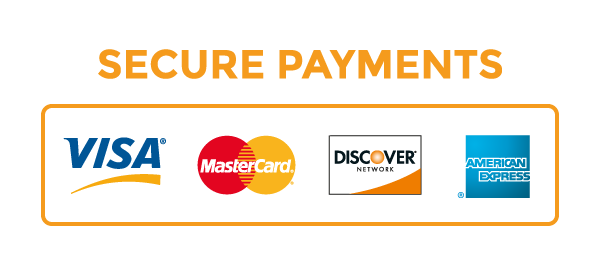“Will banks finance a carport?”
That is one common question that arises when property owners want to add a carport to enhance their home’s aesthetics and value.
The answer depends on several factors. These include the type of financing you want, your financial situation, and also the bank’s lending policies.
In this article, we will try to answer that question as best as we can. We will look at the ins and outs of financing a carport, factors that influence its approval, and tips for navigating the process. We will also look at other financing options, in case the bank disapproves.
So, let’s dive in.
Understanding Carport Financing
A carport is a practical and cost-effective solution for protecting vehicles from weather-related damage. Unlike traditional garages, carports are more affordable and versatile, offering a simpler alternative for homeowners who need a functional shelter without the complexity or expense of a full-scale construction project. Despite their lower cost, the price of building a carport can still present a financial challenge, especially for those with tight budgets or competing priorities. To bridge this gap, many homeowners turn to banks and financial institutions for assistance, seeking loans or lines of credit to cover the cost of the project.
Financing a carport often falls under the category of home improvement loans, which provide homeowners with the flexibility to invest in property upgrades. These loans can be secured or unsecured, each with distinct features and conditions. Secured loans, such as home equity loans or home equity lines of credit (HELOCs), require collateral, usually the home itself. This collateral allows for lower interest rates and higher borrowing limits but puts the property at risk if the borrower defaults. Unsecured loans, on the other hand, do not require collateral and are based solely on the borrower’s creditworthiness, typically resulting in higher interest rates and shorter repayment terms.
When approving financing for a carport, banks consider several key factors. The purpose of the loan is important, as funds for home improvement projects like carports often qualify for competitive rates and terms. The borrower’s credit score and financial history play a critical role in determining eligibility and interest rates. Additionally, lenders evaluate the potential value that the carport could add to the property, particularly for secured loans. By carefully assessing these factors, banks aim to provide financing solutions that align with both the homeowner’s needs and their ability to repay the loan responsibly.
Types of Financing Available for Carports
Home Equity Loans or HELOCs
One of the most common ways to finance a carport is through a home equity loan or home equity line of credit (HELOC). These loans allow homeowners to borrow against the equity they’ve built up in their homes. A home equity loan provides a lump sum upfront, while a HELOC functions like a credit card, enabling you to draw funds as needed.
Both options often come with competitive interest rates, but approval is contingent on sufficient home equity and a favorable credit score. Additionally, these loans typically require the borrower to demonstrate that the funds will be used for home improvements, such as building a carport.
Personal Loans
Personal loans are another viable option for financing a carport. These loans are unsecured, meaning you won’t need to put up collateral. While this makes personal loans accessible to more borrowers, they usually come with higher interest rates than secured loans. Personal loans are ideal for smaller carport projects or when homeowners prefer not to tap into their home equity.
Construction Loans
If the carport is part of a larger home improvement or construction project, a construction loan might be a suitable choice. These loans are designed specifically for building projects and disbursed in increments as the project progresses. Banks typically require detailed plans and cost estimates to approve construction loans.
Credit Cards
While not a primary option, some homeowners use credit cards to finance smaller carport projects. Credit cards offer convenience, but high-interest rates make them a less desirable choice for long-term financing. However, for minor expenses or supplementary funding, a credit card can be a helpful tool.
Factors Influencing Bank Financing Approval
Credit Score and History
Your credit score is a critical factor in determining whether a bank will finance your carport. A higher credit score signals to lenders that you are a reliable borrower, increasing your chances of approval and securing favorable terms. Reviewing your credit report and addressing any discrepancies before applying can strengthen your application.
Debt-to-Income Ratio (DTI)
Banks assess your debt-to-income ratio to gauge your ability to repay the loan. A low DTI indicates that you have sufficient income to cover your existing debts and the new loan payments. Lenders generally prefer a DTI below 43%, though requirements vary by institution.
Project Cost and Scope
The cost and scope of your carport project can influence financing approval. Providing detailed plans, including dimensions, materials, and labor costs, demonstrates your preparedness and helps the bank evaluate the project’s feasibility. Larger or more elaborate projects may require additional documentation or higher loan amounts.
Property Value and Equity
For secured loans, banks will assess your property’s current value and the equity you’ve accumulated. Higher equity and property value increase the likelihood of approval and better loan terms. Additionally, the bank may consider the potential value added to your property by building a carport.
Loan Purpose and Terms
Banks may require borrowers to specify the purpose of the loan. Home improvement loans, including those for carports, often come with favorable interest rates and terms. Clearly articulating the intended use of funds in your application can improve your chances of approval.
Alternatives to Bank Financing
While banks are a popular choice for financing carports, other options may suit your needs better:
Credit Unions
Credit unions often offer competitive rates and more flexible lending criteria than traditional banks. If you’re a member of a credit union, consider inquiring about their home improvement loan options.
Manufacturer or Contractor Financing
Some carport manufacturers and contractors offer in-house financing options. These plans may include promotional rates, such as zero-interest financing for a set period. While convenient, ensure you read the terms carefully to avoid unexpected fees or penalties.
Government Programs
Depending on your location, government programs may provide grants or low-interest loans for home improvements, including carports. Check with local housing authorities or energy-efficiency initiatives to see if you qualify for assistance.
Savings or Family Loans
If borrowing isn’t your preferred option, consider using personal savings or seeking a loan from family members. This approach avoids interest payments but requires clear agreements to maintain relationships.
Tips for Navigating the Financing Process
Assess Your Financial Situation
Before applying for financing, evaluate your financial health. Determine how much you can afford to borrow and repay comfortably. Use online calculators to estimate loan payments and ensure they fit within your budget.
Compare Lenders and Terms
Shop around to find the best loan terms for your carport project. Compare interest rates, repayment periods, and fees from multiple lenders. Even a slight difference in interest rates can result in significant savings over time.
Prepare a Detailed Proposal
A comprehensive proposal, including project plans, cost estimates, and timelines, can strengthen your loan application. Providing detailed information assures lenders of your commitment and project feasibility.
Consider Pre-Approval
Obtaining pre-approval from a bank or lender can streamline the financing process. Pre-approval gives you a clear idea of your borrowing limits and allows you to proceed with confidence in planning your carport project.
The Long-Term Benefits of Financing a Carport
Financing a carport offers homeowners a range of advantages that go beyond the immediate convenience of spreading the cost over time. A well-constructed carport serves as a protective barrier against weather-related damage, such as hail, snow, and sun exposure, which can significantly extend the lifespan of vehicles. By safeguarding cars, trucks, and other equipment from the elements, a carport helps reduce maintenance and repair costs, ultimately saving money in the long run. Additionally, carports add functionality to a property by creating a designated space for vehicles or even multipurpose use, such as outdoor storage or entertainment, enhancing the overall practicality of the home.
Beyond functionality, carports can also positively influence a property’s aesthetic appeal and market value. A well-designed carport that complements the home’s architecture can boost curb appeal, creating a polished and cohesive appearance. For homeowners planning to sell in the future, a carport may be a desirable feature for potential buyers, contributing to a higher resale value. This potential for increased property value makes carports a sound investment, particularly when financed through favorable loan terms that balance affordability and repayment flexibility.
Another notable advantage of financing a carport is the opportunity to incorporate eco-friendly or energy-efficient materials into its construction. Homeowners who opt for sustainable building options, such as solar panels or recycled materials, may qualify for tax incentives, rebates, or local government programs that promote environmentally conscious upgrades. These financial benefits can help offset the cost of building the carport, making the project even more affordable. Over time, the combination of energy savings and reduced environmental impact enhances the overall value of the investment, ensuring that the benefits far outweigh the initial expenses.
Conclusion
So, to answer the question “Can banks finance carports?” the answer is yes, they can. Banks can finance them, but the feasibility depends on your financial situation and their policies. You can also explore other options that meet your needs. Whichever way you finance it, a carport will give you a versatile structure that will enhance your home’s appeal.

